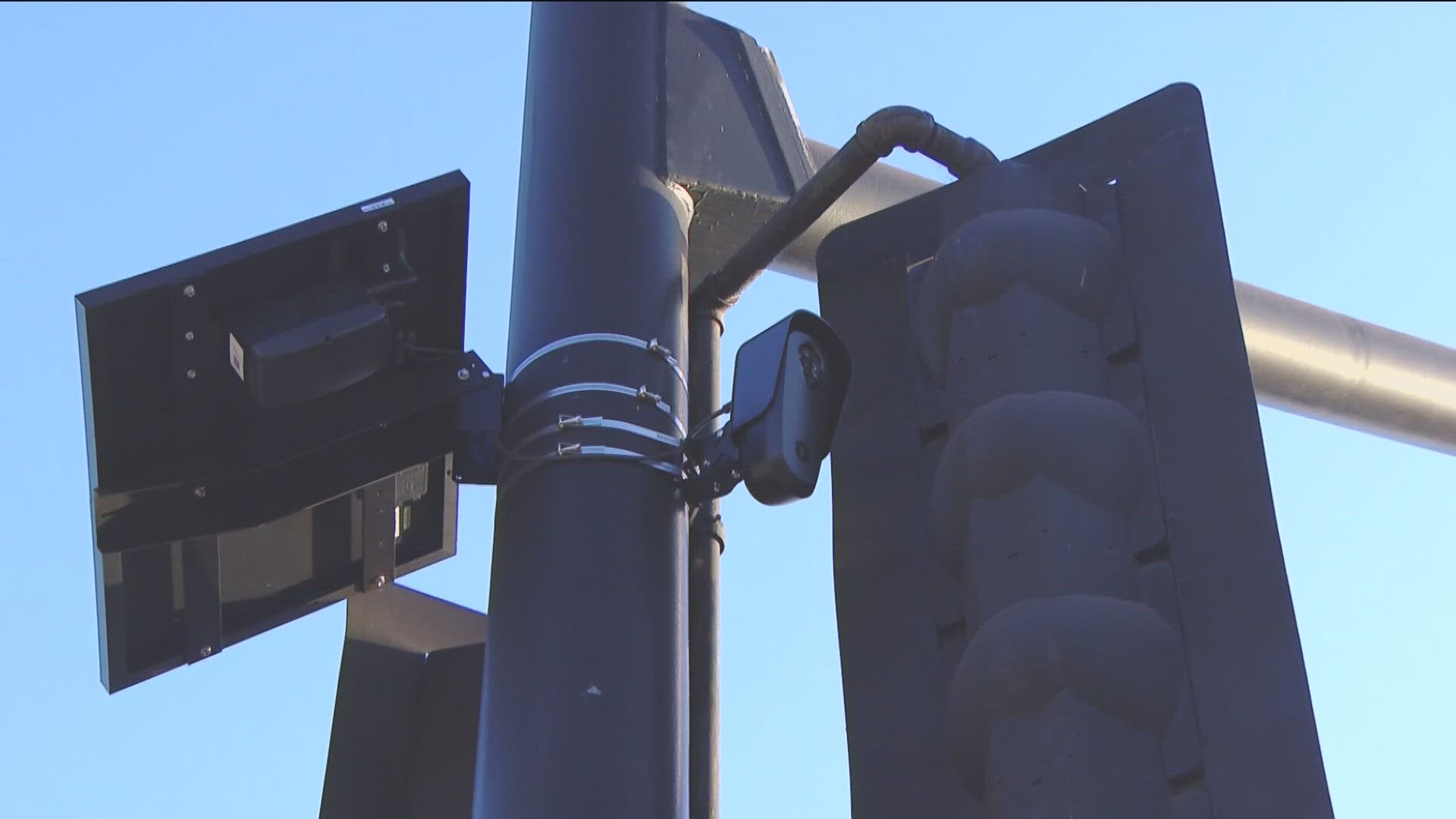EL CAJON, Calif. — Automated license plate readers are a hot topic of debate as police departments around the county start to use them. The El Cajon Police Department says that since the technology was implemented in late July, the readers have made a huge difference in recovering stolen vehicles.
“The amount of impact I’ve seen from this program in just 3 months, I wish we would’ve started it years ago,” said Chief of Police Mike Moulton. “If you drive a stolen car in El Cajon, we’re going to arrest you and put you in jail.”
The three-year pilot program consists of 40 cameras across the city affixed to light and traffic poles. Over the past three months, Moulton says fifty stolen vehicles have been recovered with a grand value of $500,000, and 59 people have been arrested.
“What happens is the cameras capture the license plate, they run that against a database and if there’s a hit, if it’s a stolen car or related to an amber alert or related to a serious crime, then that’s when we get notified,” said Moulton.
Critics of the technology, however, have reservations about privacy concerns.
“Once you have the plate readers up, once you are accumulating the location data, you are playing with privacy fire,” said Adam Schwartz, Privacy Litigation Director for Electronic Frontier Foundation. “They are a threat to free speech because many people will be afraid to attend protests if they know that with this click of a mouse, the government can see that they drove to the protest.”
Schwartz says the readers can be problematic and go too far in tracking where we go and how we live our lives.
“When we drive by a plate reader, it captures our plate and it doesn’t just check whether or not we’re wanted on a hot list,” said Schwartz. “It typically stores that data, and depending on the policy, that could be weeks, that could be years.”
The El Cajon Police Department contracts with Flock Safety, which stores the data for 30 days, and then deletes it. Moulton agrees transparency with the technology is important, but insists it’s proving to be a valuable tool.
“It’s extremely important to get criminals off the streets who are victimizing our communities and hoping that they’re held accountable in our criminal justice system,” said Moulton.
To access the Flock Safety transparency portal for El Cajon’s Automated License Plate Reader (ALPR) program with information on how many vehicles have been detected in the last 30 days and which external organizations have access to the data, click here.
WATCH RELATED: Chula Vista City Council unanimously approves license plate readers

